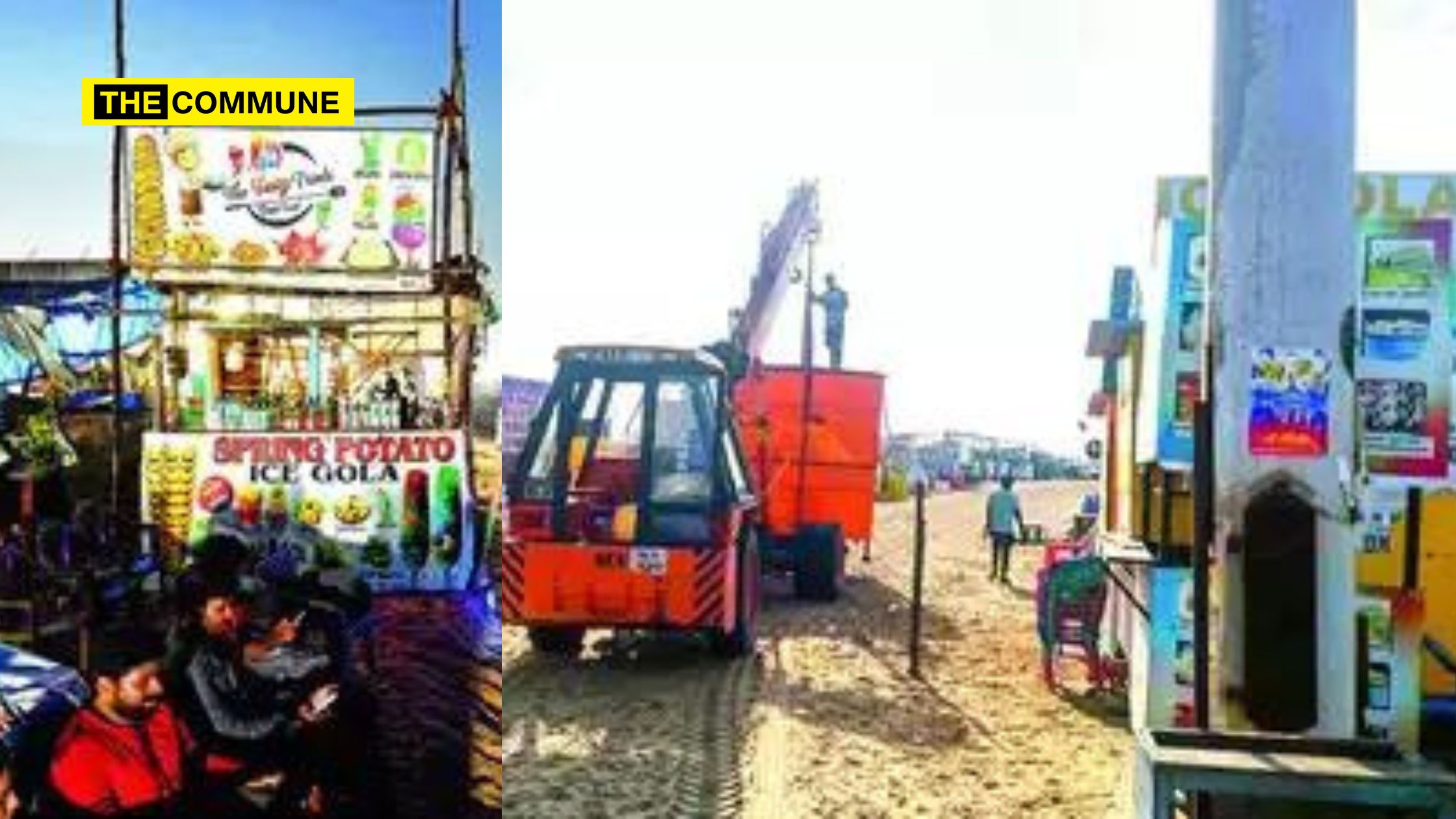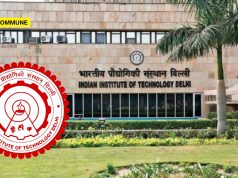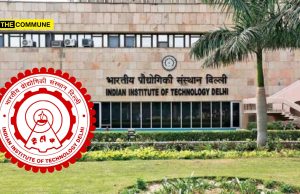
Organised gangs freely encroach on public spaces managed by the Greater Chennai Corporation (GCC), setting up rows of makeshift stalls on Chennai’s beaches. These organised gangs generate substantial revenue through their sales while operating a parallel governance system in Tamil Nadu’s capital.
The rows of makeshift stalls marring Besant Nagar beach serve unhygienic snacks and clutter the area. A well-organized network of encroachers sets them up. Anti-social elements from Urur, Olcott Kuppam, and Besant Nagar Kuppams support these gangs. These stalls pay daily ‘rent’ of up to ₹5,000, depending on their size and location.
The situation regarding the beach encroachment by organised gangs has become increasingly brazen. On 31 July 2024, a large crane relocated these stalls onto the beach. After footage of the moving tin-sheet stalls went viral at 8 a.m., the GCC removed five stalls by 12:30 p.m. However, both officials and councillors expressed their frustration and helplessness, particularly due to the lack of police support in clearing the beachfront.
According to R. Durairaj, GCC zonal chairman for Adyar and ward 172 councillors, “One household in the lower-income areas can have up to five stalls on the beach. During Gagandeep Singh Bedi’s term as corporation commissioner, discussions were held with the villagers, including former Deputy Commissioner (revenue) Vishu Mahajan. Still, the locals insisted that the beach belonged to them. Taking harsh action is challenging because the villagers unite in their resistance. Using earthmovers to clear multiple stalls at once seems inhumane, so we continue to negotiate for now.”
Local criminals lease stalls to residents, who then sublet them to non-local workers. Durairaj explained, “In 2013, there were only 130 stalls, but by 2022, the number increased to 620. We issued licenses to all existing vendors then, but now there are nearly 1,000 stalls. Locals hope the new town vending committee will regularize these stalls, but we do not plan to do so.” He said a new survey would identify legitimate beneficiaries. Then, the officials would remove excess stalls after dealing with local strongmen.
Reportedly, each stall pays up to 5,000 rupees daily in bribes to local strongmen. These amounts vary depending on the type of stall.
Regarding Wednesday’s beach grab by organized gangs, regional deputy commissioner (south) M. P. Amith stated that they removed the new stalls within hours of their setup after receiving complaints. He said, “There is usually resistance from locals, but we continue to remove the stalls. By Thursday, all shops within 25 meters of the shoreline will be cleared.” The area near Annai Velankanni Church has nearly 200 meters of beach crowded with stalls. Each stall has up to 20 chairs on both sides, perpendicular to the beach. Some hawkers ignore the wooden barricades installed by the corporation to prevent encroachment. Elliot’s Beach and promenade remain overwhelmed with hawkers, even though it is a non-vending zone.
Besant Nagar resident T. D. Babu called for stringent enforcement on the beach, stating, “The beach has disappeared, replaced by food carts, cylinders, stoves, and uncertified food. It’s a daily catastrophe.” Civic activist David Manohar from Arappor Iyakkam suggested establishing a dedicated police unit to protect the beaches. He said, “This would provide the corporation with a ready force to assist in clearing encroachments.”
GCC commissioner J. Kumaragurubaran announced plans for night-time encroachment removal drives. He stated, “We are organizing systematic beach clean-ups and removing encroachments during the night. We are currently counting vendor numbers and will remove the stalls soon.”
(With inputs from TOI)
Subscribe to our channels on Telegram, WhatsApp, and Instagram and get the best stories of the day delivered to you personally.




